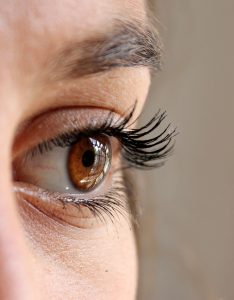 Glaucoma is an eye condition that causes damage to your optic nerve, which transmits signals from your eye to your brain and allows you to see. This causes blind spots in your vision to develop over time.
Glaucoma is an eye condition that causes damage to your optic nerve, which transmits signals from your eye to your brain and allows you to see. This causes blind spots in your vision to develop over time.
Glaucoma often occurs due to increased pressure in the eye, which is itself typically caused by a buildup of fluid in the eye. However, it can still develop in an eye with normal pressure.
Glaucoma is also one of the most common causes of blindness for people over the age of 60, but it can occur at any age. Other risk factors for this disease include:
- A family history of glaucoma
- Eye injuries
- Chronic medical conditions such as diabetes, high blood pressure, or sickle cell anemia
- Extended use of corticosteroids
- Extreme nearsightedness or farsightedness
Glaucoma encompasses several different conditions that present varying symptoms, making it potentially challenging to identify. Additionally, many forms of glaucoma, such as open-angle and normal-tension glaucoma, may not present any symptoms in their early stages. Forms of glaucoma include:
- Open-angle glaucoma
- Acute angle-closure glaucoma
- Normal-tension glaucoma
- Pigmentary glaucoma
- Pediatric glaucoma
There is no cure for glaucoma. However, there are steps you can take to reduce your risk of developing it. The first is to regularly visit an ophthalmologist for eye exams, including a comprehensive dilated eye exam by the age of 40. The second is to maintain an overall healthy lifestyle by maintaining a healthy weight, blood pressure, and physical activity level.
You can schedule an appointment with an ophthalmologist for glaucoma diagnosis or treatment at Jamaica Hospital Medical Center’s Ophthalmology Department by calling (718) 206-5900.
All content of this newsletter is intended for general information purposes only and is not intended or implied to be a substitute for professional medical advice, diagnosis or treatment. Please consult a medical professional before adopting any of the suggestions on this page. You must never disregard professional medical advice or delay seeking medical treatment based upon any content of this newsletter. PROMPTLY CONSULT YOUR PHYSICIAN OR CALL 911 IF YOU BELIEVE YOU HAVE A MEDICAL EMERGENCY.
